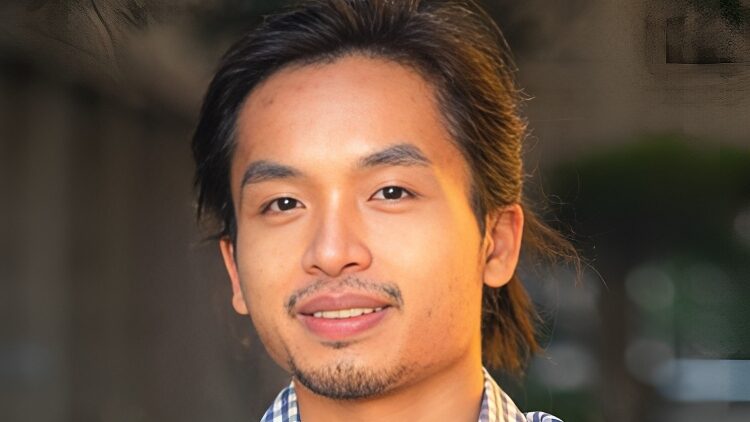
King L Hung: How Do Cancer Cells Inherit Extrachromosomal DNAs?
King L Hung, Biologist, Postdoctoral Fellow at Scripps Research, shared a post on X:
“Cancer cells often harbor oncogenes outside chromosomes on extrachromosomal DNA (ecDNA), which is unevenly inherited by dividing cells. Today we report in Nature that collectives of ecDNAs are inherited together by dividing cancer cells.”
First of all, this was a great collaboration with co-lead authors Matt Jones, Ivy Tsz-Lo Wong, EJ Curtis, Mischel Lab, Howard Chang and others.
Normally, DNA is stably inherited when cells divide. Cancer cells bend this rule by keeping oncogenes outside chromosomes on ecDNA. As cancer cells can have many copies and distinct sequences of ecDNAs, we asked whether these ecDNA species are randomly distributed among cells.
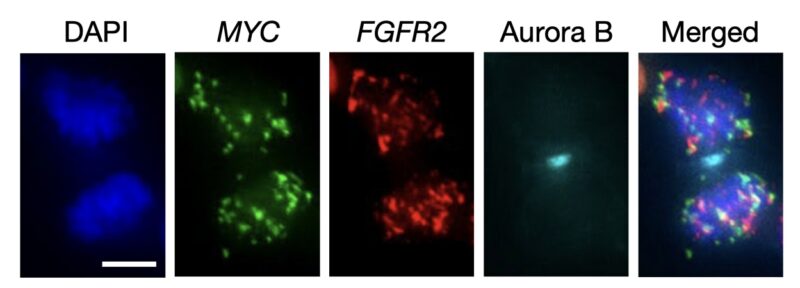
Surprisingly, the answer was no. Rather, we found that different ecDNAs containing cancer-driving genes are passed down together when cancer cells divide, leading to correlations in combinations of ecDNAs.

We think co-inheritance of ecDNAs is promoted by transcription complexes. Inhibition of transcription initiation (but not elongation) by triptolide reduced co-inheritance.
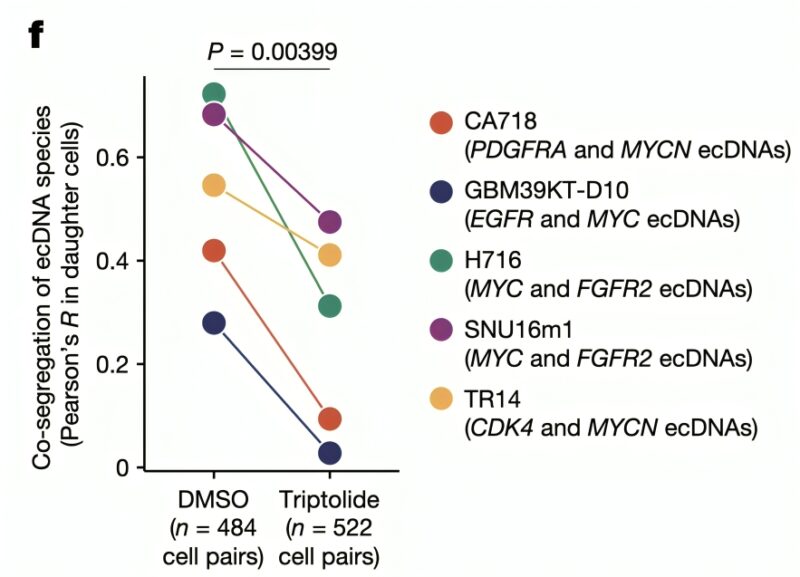
While evolutionary modeling suggested that cells harboring multiple ecDNA species could have been selected, the observed copy number correlation is mainly explained by co-inheritance rather than co-selection of ecDNAs.
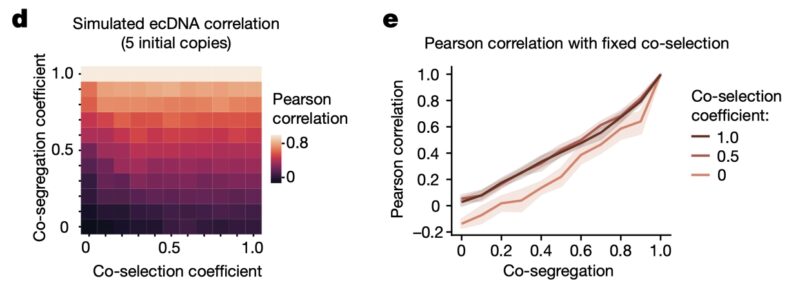
Co-inheritance leads to coordinated dynamics of ecDNAs in cells under selective pressure. Treating cancer cells with a drug that inhibits one of the oncogene products leads to co-depletion of multiple ecDNAs, suggesting that they can have coupled responses to perturbations.
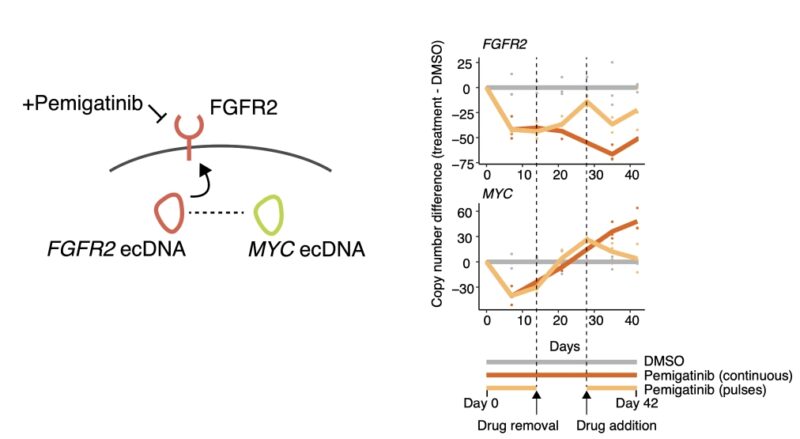
Overall, these results show unique distribution and evolution of extrachromosomal oncogene copies in cancer cells. Co-inheritance allows cancer cells to keep specific combinations of DNA sequences, allowing the winning combination to get amplified in cancer.
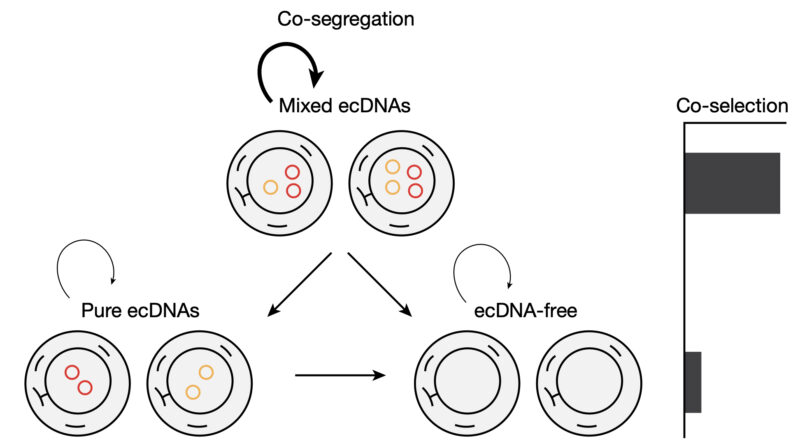
Thanks to Cancer Grand Challenges for supporting this project. Thank you also to all other collaborators who made this study possible, including Joshua Lange, Britney He, Jens Luebeck, Rachel Schmargon, Elisa Scanu, Lotte Brückner,Benjamin Werner, WeiniHuang, Ben Cravatt and Anton Henssen.
More posts featuring King L Hung.
-
Challenging the Status Quo in Colorectal Cancer 2024
December 6-8, 2024
-
ESMO 2024 Congress
September 13-17, 2024
-
ASCO Annual Meeting
May 30 - June 4, 2024
-
Yvonne Award 2024
May 31, 2024
-
OncoThon 2024, Online
Feb. 15, 2024
-
Global Summit on War & Cancer 2023, Online
Dec. 14-16, 2023
